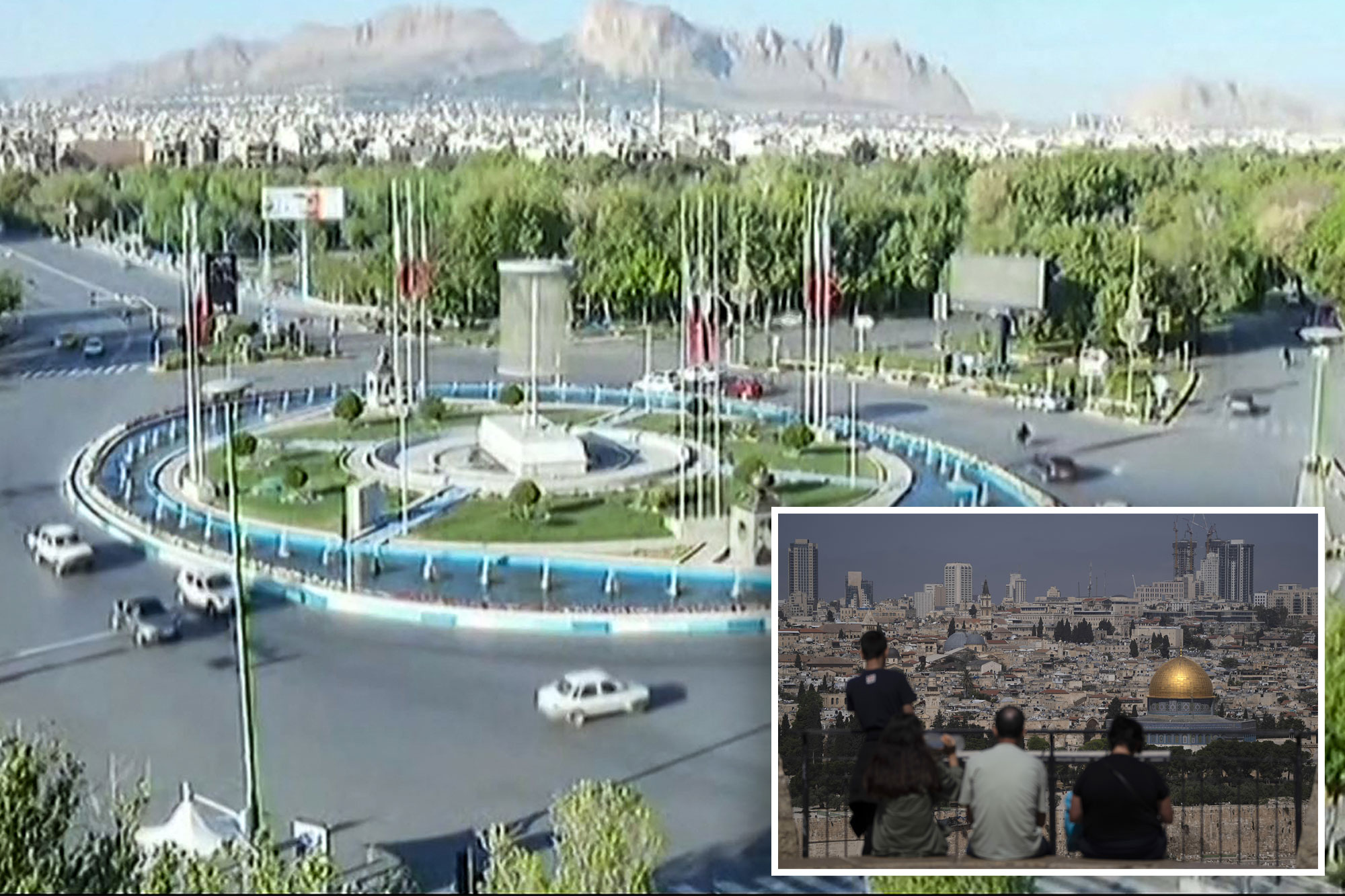
Thursday night’s strikes by Israel against Iran in response to last weekend’s unprecedented missile and drone attack were not meant to immediately escalate the Middle Eastern war — but put Tehran on notice about the Jewish state’s capabilities, experts on the region tell The Post.
The Israeli strike reportedly hit near a major airbase in the central city of Isfahan, home to approximately 2 million people as well as the underground Natanz uranium enrichment site — which has been repeatedly targeted by suspected Israeli sabotage attacks.
Richard Goldberg, senior adviser to the Foundation for Defense of Democracies, said Friday the Israeli military had meant to “thread the needle” by showing they have the “capability to breach Iranian air defense at any time” — while avoiding striking a target that would invite another response from Tehran.
The choice of Isfahan as the target was meant to deliver the message “if we wanted to destroy your nuclear program, we could. So don’t tempt us,” added Goldberg, a former National Security Council official specializing in Iran during the Trump administration.
“Long term, the events of last Saturday night are a change in the paradigm of the region,” he went on. “Iran has crossed the Rubicon and it will not be coming back. Israelis have also changed their entire of Iranian decision making based on what they did on Saturday night.”
In the near future, Goldberg suggested, the drastic action of Iran targeting Israel directly means Jerusalem is more likely to strike at Iran’s nuclear facilities.
“Saturday night will change Israel’s timeline for increasing, over a medium-term timeframe, its aggressiveness in degrading or potentially destroying critical capabilities, including its nuclear capabilities,” he said.
“When that would happen is anyone’s guess.”
Israel has been engaged in a direct war with Hamas in the Gaza Strip since the terror group launched a deadly attack on Oct. 7, killing an estimated 1,200 people, including 33 Americans.
Iran has long been known to be a backer of Hamas, but Tehran had never been brazen enough to attack Israel from its own territory before this past weekend.
Iran’s action “has changed the interpretation of this war by western governments,” but whether it “changed permanently or temporarily remains to be seen,” said Middle East expert and FDD senior vice president for research Jonathan Schanzer.
In recent weeks, relations between President Biden and Israeli Prime Minister Benjamin Netanyahu had become strained over Israel’s intention to launch a ground offensive in the southern Gaza city Rafah, near the border with Egypt.
Before Israel’s counterstrike on Iran, the Pentagon had maintained that the US does not seek an “escalation” of conflict in the region, refusing to endorse any retaliatory action by the Jewish state.
On Friday, White House press secretary Karine Jean-Pierre pointedly declined to comment on the Israeli action.
Schanzer said the Biden administration was behind the times with its pleas to avoid “escalation.”
“That wider war is inevitable and had been declared quite a while ago,” he said.
Going forward, Schanzer added, Israel will continue to face “multiple Iranian proxy threats — Hamas, Hezbollah, Houthis [in Yemen], Shiite militias in Iraq and Syria — this is now what they are going to be fighting [even] if Iran remains deterred.”
“It’s not clear Israelis need a strategy that expands well beyond Hamas,” he continued.
In the diplomatic context, Iran’s strike on Israel has “lowered the temperature” with the US, just as tensions were getting “pretty bad,” according to Elliot Abrams, the chairman of the Vandenberg Coalition and a senior fellow for Middle Eastern Studies at the Council on Foreign Relations.
“This moment of great cooperation is a reminder to everybody of the importance of the relationship,” Abrams said. “If Israel did the kind of retaliation that it seems to have done — not one that escalates — the administration would appreciate that too.”
However, it remains to be seen what happens when Israel goes into Rafah, which Abrams predicted could happen after Passover ends at sundown April 30.
“The magnitude of Iran’s attack,” he argued, “makes it clearer to the Israelis that they’ve got to finish the war in Gaza by destroying Hamas as a military force.”














